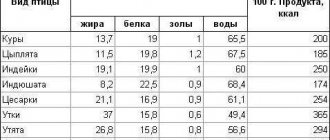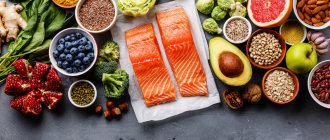More than 80% of people gain weight again after a weight loss diet. Most often, the reason for such a rollback is considered to be laziness and gluttony. But Mexican Salvador Camacho cannot be blamed for either. After surviving an attack by armed robbers, he quickly gained weight due to post-traumatic stress - from 70 to 103 kilograms. And when, after an attack of arrhythmia, doctors said that he must lose weight so as not to die in the next five years, he energetically took on the solution to the problem. I reduced my caloric intake, switched to low-fat foods, ran 10 kilometers every morning, and endured constant hunger, fatigue and mood swings. But the kilograms lost at first still quickly returned. Why?
The diet that Camacho and millions of other people followed is based on counting calories consumed and burned. The idea is simple: if you eat more than you burn, your weight will increase. If it’s the other way around, you lose weight. How do you know how much you're spending? Any fitness tracker will show this. How much do you consume? The packaging of any product indicates its energy value per 100 grams. Is everything simple and clear? No, says The Economist journalist Peter Wilson. In the article “The Death of the Calorie,” a translation of which is exclusively available on the Bookmate service, he, based on scientific research data, argues that the approach to diet as a simple addition and subtraction of calories is high time to reconsider.
Is there life without counting calories?
Considering all these facts, writes Peter Wilson, we should long ago give up the habit of focusing on the calorie content of foods when choosing food. This is confirmed by the happy ending to the story of Salvador Camacho. After four years of monitoring and carefully counting calories, he was tired of feeling like an eternally hungry loser. And he decided, at his own peril and risk, to change his approach.
“It may sound naive, but I decided to just listen to my body,” explains Camacho. He began to monitor not the quantity, but the quality of food. As a result, I gave up semi-finished products. And for the first time in several years I allowed myself bacon, cheese, low-fat milk and steak. The positive effects were not long in coming. At first he stopped experiencing insatiable and oppressive hunger. This alone was a huge relief. After two months, he was sleeping much better and was able to get off antidepressants. “Instead of feeling constantly ashamed, angry, and afraid, I felt in control of my body and even proud of it,” says Camacho.
But what about weight? This is the most amazing thing. Camacho began to rapidly get rid of extra pounds. And this time the weight did not return. And although he periodically eats foods that were previously strictly prohibited (buns, eggs, olive oil, nuts), indulges in a couple of glasses of wine and works out only three to four times a week, he looks “pumped up like a professional rugby player.” At 80 kilograms of weight, he has almost no fat in his body. But more importantly, by giving up constant calorie counting and changing his diet to simple, natural food, he was finally able to achieve harmony with his own body.
Camacho is currently working on a dissertation on the principles of healthy eating. His goal is to show, based on scientific evidence and his personal experience, that it is often counting calories that deprives us of the ability to eat in moderation. For now, people like him are in the minority. Peter Wilson even calls Camacho a "calorie dissident." But the situation is changing: more and more scientists are beginning to openly say that the obsession with calories is not only pointless, but may even be exacerbating the modern obesity epidemic.
General provisions on calories
Calories are the main source of energy for our body. Enzymes responsible for digestion are located in the mouth, stomach, and intestines. They break down food into simpler elements such as amino acids, sugars and others. All these elements are carried by the circulatory system throughout the body and cells. Energy is stored in cells and used as needed.
The golden rule of weight loss is to create a calorie deficit.
We are used to counting energy in the form of calories (kilocalories). A unit of calorie is equal to the heat required to heat one unit (gram or kilogram) of water by 1℃. This value for carbohydrates and proteins is 4 calories, for fats - 9 per gram. It is quite difficult for enzymes to break down plant fibers, so they provide only 2 calories.
Fun fact: A common mistake when trying to lose weight is to cut out fat. This is incorrect because they affect the production of hormones. Researchers also found that food rich in sufficient amounts of vegetable fats helps restore the nervous system.
To obtain the most accurate data on how many calories a person consumes by consuming any product, many factors are taken into account. For example, how well a particular product is absorbed by the body, what kind of processing it has been subjected to (fried, cooked, raw, etc.), how its chemical properties and texture have changed. Also taken into account is data on how much energy the body itself consumes to break down macromolecules, how gastrointestinal bacteria influence this, and how much food they themselves consume.
Interesting: Why do football players use socks and not knee socks or socks?
Can diet slow down your metabolism?
– If you eat an unbalanced diet, it can slow down your metabolism. For example, your diet contains a lot of protein, but no fat or carbohydrates.
What's happening? Yes, it is beneficial for us to eat protein, but if we avoid at least a minimum of fats and carbohydrates, the body will store the protein that has entered it. And as a result it will turn into fat.
In my opinion, the diet is only indicated if a person has any diseases that require adherence to it.
How not to harm your metabolism?
– First of all, you need to adhere to a balanced diet that is suitable specifically for your body type and level of excess weight. Calories should take into account your basal or basal metabolic rate (an accessible formula for calculation can be found on the Internet) - the number of calories you need to consume daily.
For example, an obese person's baseline caloric intake will be higher than that of a thinner person. Therefore, an obese person needs to eat more calories to lose weight.
You shouldn’t put everyone on a 1200 calorie diet, otherwise we will see the result: “I was on 1200 kcal, lost weight - and gained even more again.” The same “yo-yo” effect.
In addition to calorie content, you eat taken into account For example, when consuming protein foods (lean meat, egg whites), the body will spend more energy to digest these proteins. As a result, the temperature in the body will rise, and these processes will burn everything unnecessary.
If you consume mainly carbohydrate or fatty foods, then the body will spend less energy on it. It turns out that in this case you consume more energy than the body burns it, and as a result, fat accumulation occurs.
Well, plus you need to maintain a regular level of physical activity . It’s great to do light exercises in the morning or try to walk more during the day: it’s better to walk up to the floor one more time, rather than take the elevator, or go through one more stop. This way you will force your muscles to work, and the body will be able to spend energy on the ability to carry out physical activity.
All calories are the same
Carbohydrates, fats, fructose will be broken down and absorbed differently. Thus, the nutritional value entering the body as a result of a balanced diet will provide a long-lasting feeling of fullness.
And eating a diet with plenty of sugar causes a spike in insulin. As a result, the person will experience severe hunger.
Important. Nutritionists recommend including about 40 g of fiber in your daily diet. This will allow you to start metabolic processes in the body, which will allow you to better break down accumulated fat.
100/100
– How many calories should you cut from your diet to lose weight? Elena, Azov
– First you need to find out how many calories you consume on average at the moment. This can be done by writing down everything you eat on any given day (morning, evening and night) for at least two work days and one weekend, since we tend to eat differently at work and at home. After this, you need to calculate the number of calories contained in each food product (to do this, carefully read the information on the packages and use special tables of the energy value of products, which can be found in many books on healthy eating). Then divide the total amount of calories by the number of days during which you monitored your diet. This will give you the average number of calories you consume in one day.
Now try to apply the “100/100” method proposed by the American nutritionist Foreyt: “In order to lose about a kilogram in one month, cut your daily diet by 100 kcal and increase your daily physical activity by 100 kcal. Translated into simple everyday language, this means: spread half as much butter on your morning sandwich and walk to work for 20 minutes every day,” he explains.
Scientists have proven that calories do not affect weight loss. What should you pay attention to now?
DietsNutritionWeight LossSportFitness
Our ideas about healthy and unhealthy foods are influenced by fashion and change dramatically after each new scientific study. A clear proof of this is the story of the popularity of low-fat products. It all started in the 40s, when American scientist Ansel Keys published a scientific paper* in which he argued that animal fats increase the risk of cardiovascular diseases. His work received a wide response: Americans began to buy low-fat products, and marketers inflated this trend to a global scale.
Low-fat diets were very popular until recently, when TIME magazine published a revealing issue in 2014 with butter on the cover and the headline: “Eat Butter. Scientists have declared fat the enemy. Why were they wrong? Fat was rehabilitated, former fans of the low-fat diet began counting calories, and the word “low-calorie” became synonymous with healthy after the publication of books by science journalist Gary Taubes.
The word calorie itself comes from the Latin calor - heat. And means the amount of heat required to heat 1 gram of water by 1 degree. The calorie content, or energy value of food, refers to the amount of energy that the body receives when it is fully absorbed. To determine the full energy value of food, it is burned in a special apparatus - a calorimeter and the amount of heat released is measured.
Until recently, it was believed that the number of calories obtained from food was directly proportional to the amount of energy received by the body. And if the balance between calorie intake and energy expenditure is disturbed, a person will certainly begin to gain weight. It sounds logical, but it's not entirely true. You've probably noticed that some people can eat everything in any quantity and not become obese. And for others, it’s enough to eat one chocolate bar to add a new kilogram. In addition, many people who are losing weight note that even with strict adherence to a low-calorie diet, they continue to gain weight. All this happens because there are many factors that influence both the calorie content of food and the consumption of these calories.
First, you need to take into account your metabolic rate: the conversion of excess calories into excess weight depends on it. Secondly, you should not blindly trust the composition of products on the packaging. Manufacturers calculate the conditional energy value mathematically: the composition of the product is decomposed into the amount of nutrients and the approximate calorie content is summed up (1 g of protein or carbohydrate - 4 kcal, 1 g of fat - 9 kcal). But none of the manufacturers conduct a chemical analysis of the product. Therefore, you will never be able to calculate the exact calorie content of what you eat per day.
Thirdly, the most important factor is the ability of various organic substances to be absorbed by the body. For example, protein and protein shakes are almost completely absorbed, which means the body receives the necessary nutrients and functions properly. Digestibility also depends on the individual characteristics of the body, our habits, lifestyle and even the region of residence.
It turns out that some products, while remaining normal in calorie content, can be useless and even harmful. They not only increase your hunger, but also prevent you from burning fat. For example, sweets and starchy foods, when they enter the body, quickly increase blood sugar levels, which, on the one hand, gives a sharp surge of energy, and on the other, contributes to the formation of excess weight. So it’s not just about the amount of food, but about the correct ratio of proteins, fats and carbohydrates (BJU). A simple example: if you reduce fat in your diet and increase the proportion of carbohydrates, you will most likely begin to gain weight, even if you do not get enough daily calories. The thing is that each element performs its function:
Protein is the main building material, it is thanks to it that muscle mass grows, strength and energy appear.
Fats keep the skin toned and form the body's defense system.
Carbohydrates are needed for mental work and also perform an energy function.
A deficiency of any component can lead to deterioration in health. Therefore, it is so important to determine at least an approximate daily balance of BZHU and try to adhere to this norm in your daily diet. You can focus on the norm: 30% proteins, 30% fats and 40% carbohydrates - this ratio allows you to keep your weight under control.
Scientists have proven that calories do not affect weight loss. What should you pay attention to now? was last modified: July 1, 2021 by 7sisters











